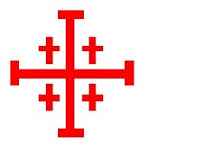I
am reminded of a therapist at Yale who always turned up for sessions with his
clients wearing green rubber boots. When
I asked him why, he explained that every
morning he cleaned out his dog run, then he hosed off his boots and came to
work; and I knew, as sure as I’m sitting here, that after talking with me he
was going to hose off his boots one more time before going home. His whole life was wading in crap from
morning to night.
Many of us from the
more liberal seminaries received no training in the theology of worship and
prayer, or in systematic theology. Instead we received enough training in
psychology and counseling to become cheap therapists. Got ordained, gonna get
me some green rubber boots, and get to work. I hear tell from them what knows
that this is still goin' on. When you think of it, it's kinda terrifying.
What were we trained
in? Altizer and Hamilton’s “Death of God
Theology”, Joseph Fletcher’s “Situation Ethics,” that bloodless theologian Paul
Tillich, biblical skepticism and social relevance. There wasn’t enough weight to save a soul,
not even our own. What are the seminaries
teaching today? “Foundations for
Theological Praxis,” “MCC Polity and General Convention,” “The Role of the
Debates of Human Sexuality in Global Christianity and Mission,” “Third World
Feminist Theology,” and “The Social Gospel and the New Social Creed.”
There was an old bumper
sticker seen around Harvard Square that advised “Eschew Obfuscation.” If you don’t have a grasp of the simple
basics of the Christian Faith and can’t apply them to yourself, you don’t have
anything but obfuscation. What is
amusing in a sad sort of way is that the American Episcopal Church doesn’t
understand why it is mistrusted in much of the two-thirds world.
"You will arise and have compassion on Zion, for it is time to have mercy upon her; indeed the appointed time has come. For your servants love her very rubble and our moved to pity even for her dust," [Psalm 102;13,14].




